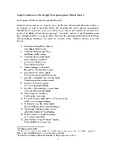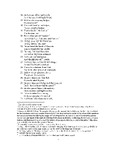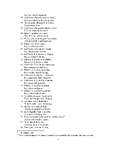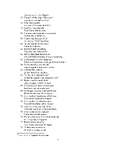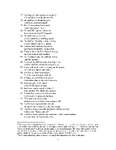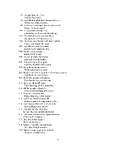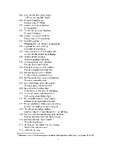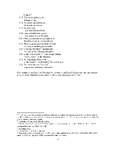Discourses of Muslim Scholars in Colonial Ghana
by John Hanson and Muhammad al-Munir Gibrill
Malam Ṣalaw 2 (praise poem)
Creator: al-ḥājj 'Umar ibn Abī Bakri of Kete-Krachi
Description: This praise poem is one of several composed by al-ḥājj 'Umar Krachi (al-ḥājj 'Umar ibn Abī Bakr) in honor of Malam Ṣalaw (Ḥussain al-Kashnāwī).
Malam Ṣalaw was a prominent Hausa scholar who assumed positions of influence in Kumase during the British colonial era. Malam Ṣalaw was born in Yendi (in today's northeastern Ghana); his father originally was from Katsina in northern Nigeria and his mother was related to the royal family of the Dagomba kingdom. Malam Ṣalaw studied with al-ḥājj 'Umar Krachi in his youth and later moved to Kumase, where he was recognized by the British colonial administration as head of the Hausa community. Malam Ṣalaw eventually consolidated considerable influence and secured British recognition as the leading Muslim jurist in Kumase. Resistance to his role from other Muslim communities in Kumase eventually led to his removal from office in 1932, whereupon Malam Ṣalaw departed and took up residence in Katsina. For Malam Ṣalaw's tenure as head of the Hausa community in Kumase, see Enid Schildkroudt, People of the Zongo (Cambridge: Cambridge University Press, 1978), 198-205.
This poem praises the generosity and leadership of Malam Ṣalaw in 1342 AH (1923), several years into his role as head of the Hausa community in Kumase.
Al-ḥājj 'Umar's poem refers to the generosity Malam Ṣalaw has shown to the poet. One of these gestures was a financial contribution to the construction of a mosque in Krachi, which is a topic of another poem in this collection. This poem states that these acts of benevolence demonstrate Malam Ṣalaw's humility and affection for al-ḥājj ῾Umar. The poem also refers to Malam Ṣalaw's installation of leader of the Hausa community in Kumase and describes his large entourage of guards, courtesans, and servants. The poem includes praises to Malam Ṣalaw's family, including his grandfather, father, mother and siblings.
The poem is composed in the prosodic style of the classic Arabic qaṣīda. It is organized in three sections: the amatory prelude, the journey and the praise sections. In the introduction, the poet notes that classical Arab poets introduced their poems with the conventional prelude emulated in the poem. The poet however adds his own style, reflected in other writings, such as al-ḥājj 'Umar's elegy to his son.
Malam Ṣalaw was a prominent Hausa scholar who assumed positions of influence in Kumase during the British colonial era. Malam Ṣalaw was born in Yendi (in today's northeastern Ghana); his father originally was from Katsina in northern Nigeria and his mother was related to the royal family of the Dagomba kingdom. Malam Ṣalaw studied with al-ḥājj 'Umar Krachi in his youth and later moved to Kumase, where he was recognized by the British colonial administration as head of the Hausa community. Malam Ṣalaw eventually consolidated considerable influence and secured British recognition as the leading Muslim jurist in Kumase. Resistance to his role from other Muslim communities in Kumase eventually led to his removal from office in 1932, whereupon Malam Ṣalaw departed and took up residence in Katsina. For Malam Ṣalaw's tenure as head of the Hausa community in Kumase, see Enid Schildkroudt, People of the Zongo (Cambridge: Cambridge University Press, 1978), 198-205.
This poem praises the generosity and leadership of Malam Ṣalaw in 1342 AH (1923), several years into his role as head of the Hausa community in Kumase.
Al-ḥājj 'Umar's poem refers to the generosity Malam Ṣalaw has shown to the poet. One of these gestures was a financial contribution to the construction of a mosque in Krachi, which is a topic of another poem in this collection. This poem states that these acts of benevolence demonstrate Malam Ṣalaw's humility and affection for al-ḥājj ῾Umar. The poem also refers to Malam Ṣalaw's installation of leader of the Hausa community in Kumase and describes his large entourage of guards, courtesans, and servants. The poem includes praises to Malam Ṣalaw's family, including his grandfather, father, mother and siblings.
The poem is composed in the prosodic style of the classic Arabic qaṣīda. It is organized in three sections: the amatory prelude, the journey and the praise sections. In the introduction, the poet notes that classical Arab poets introduced their poems with the conventional prelude emulated in the poem. The poet however adds his own style, reflected in other writings, such as al-ḥājj 'Umar's elegy to his son.
Date: 1923
Date Range: 1920-1929
Location: Kete-Krachi , Volta Region, Ghana
Format: Text/pdf
Language: English
Rights Management: Educational use only, no other permissions
Contributing Institution: Muhammad al-Munir Gibrill; John H. Hanson; Institute of African Studies, University of Ghana at Legon; Northwestern University; MATRIX: The Center for Humane Arts, Letters & Social Sciences Online at Michigan State University
Contributor: Muhammad al-Munir Gibrill (translator and transcriber); John H. Hanson (reviewer)
Digitizer: MATRIX
Archive: University of Ghana at Legon, Institute of African Studies
Source:
University of Ghana at Legon, Institute of African Studies Arabic collection, document number IAS.AR.127. The collection holds other copies: documents16 (xiii), 168, and 239 (i).
